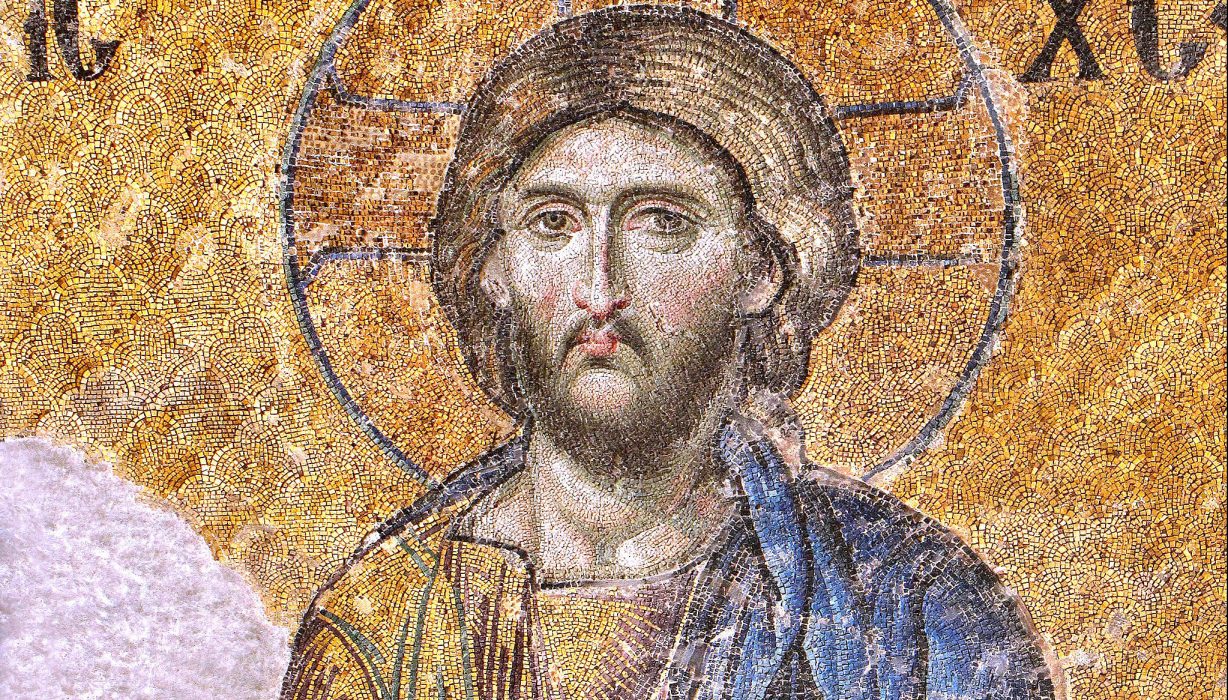Of course, it is absolutely true that the bishops and priests (or whatever you wish to call them) are, indeed, guardians of the tradition, the sacred deposit, the rich body of creeds, confession, and liturgy (1 Tim 6:20; 2 Tim 1:14). In the wake of the Second Vatican Council, Pope John Paul II wrote in the Apostolic Constitution Fidei Depositum, "Guarding the deposit of faith is the mission which the Lord has entrusted to his Church and which she fulfills in every age." The bishops and priests are the point people in this sacred task on behalf of the Church but they are not the only ones with a duty to preserve and prevent departure from the one true faith and the doctrine that does not change. The joke is not with this but with a pope who seems intent upon evolving what is believed and how that is practiced and with those bishops who walk lock step with his embrace of change. If this pope is not working to change the Roman Church, then he is worse than a liar but deceiving the people on both sides of the great divide of Scripture and its authentic tradition.
Tradition is not tradition because a pope says it is or because bishops say it is or because priests say it is. Tradition belongs to the judgment of the whole Church. Where popes, bishops, and priests depart from this witness of Scripture and its authentic tradition, there had better be people in the pews who raise a holy fuss and who refuse to be quiet until faithfulness is restored. As true as this is for Rome, it is no less true for Lutherans, Anglicans, and for the whole of all that groups who fall under the general name of Protestantism. While the churches have been floundering trying to keep up with the pace of culture and the fickle opinions of the masses, the faith has been surrendered and the Gospel silenced in favor of everything from a deity named climate change, sexual desire, gender identity, and social justice. That only shows us that a pope is not enough, bishops are not enough, and priests are not enough to prevent the replacement of truth with error. Now more than ever, the future of the Church depends upon the faithful in the pews as much as it depends upon the ministers of the Church. In this sense we are all guardians of tradition.
The parents who teach the faith in the home, who put their children's hands together and impart the faith through prayer, and who bring them to the worship services of God's House are no less the guardians of the sacred tradition (Scripture and its many faithful voices who proclaim it and defend it through the ages). The Sunday school teacher or catechism instructor or youth group leader all are guardians of the faith and not babysitting or entertaining the children of God by baptism and faith. Those who instruct God's people in the Scriptures, in the witness of creed and confession, and in the pattern of the faith prayed in the liturgy are also guardians of tradition. Faithful church workers are essential to the passing on of the sign of faith. Nobody doubts or denies that. But they cannot function alone or in isolation. They work in concert with the parents in the home, the many voices and teachers of the faith, official and unofficial, to proclaim the once and forever faith. We need all of them.
Lutherans believe in apostolic succession but we refuse to confine it simply to one office. We insist that there is an uninterrupted line of authority, doctrine, and practice, down from the Apostles and through the ages but we insist that this involves the whole community of the faithful and cannot be confined to one office. It is neither the succession of an idea that exits only in an imagination. It is a true and real apostolic succession, every bit as apostolic as Rome insists, but of a believing community also gathered around the Word and Table of the Lord along with the pastor. It is not unfaithful to admit that the distinction between pastor and bishop is one of jurisdiction defined by human authority and not by the Scriptures or the earliest Christians. But for Lutherans it is step too far to insist that succession applies only to this office as distinguished by the Church (dare I say developed over time). No one but a fool would say that bishops and pastors are not guardians of the rich and faithful tradition passed down from the apostles (of which Scripture is it's beating heart and source of life). But it is foolish to presume that these are the only guardians who bear responsibility for passing down faithfully what is believed, confessed, and taught. We do not need fewer but as many as possible working together, captive to the Word, and joyfully living in fidelity with the Scriptures and the catholic witness of the saints before us. We need them all.

No comments:
Post a Comment